This series by American studies professor Ben Railton explores the connections between America’s past and present.
Speaking to the right-wing student group the Young America Foundation (YAF) at their Standing Up for Faith and Freedom conference on April 23, former Congressman and current CNN contributor Rick Santorum advanced a particular vision of American history and identity to make the case for the conference’s twin themes. He argued, “We came here and created a blank slate. We birthed a nation from nothing. I mean, there was nothing here. I mean, yes we have Native Americans but candidly there isn’t much Native American culture in American culture.”
Santorum’s remarks echo a longstanding and familiar refrain, one that defines and celebrates America’s European origin points as singular, homogenous, and foundational. But this narrative is strikingly wrong about America: not only in a number of specific ways, but also in a broader way that illustrates core concepts in my last two books: the exclusionary vision of American history and identity I trace in We the People; and the mythic form of American patriotism I define in Of Thee I Sing.
The first specific wrong is perhaps the most obvious, but nonetheless a vitally important mistake to challenge: the idea that “there was nothing here” before European settlers arrived. It’s not just that this narrative erases the hundreds of distinct Native American tribes that were present across the continent at the time of first contact and ever since. It’s also that, as recent scholars have traced in countless ways, these indigenous cultures were both as sophisticated as contemporary societies and interconnected in networks of trade and commerce that would by any measure be defined as vital elements of a multi-layered society. In 1000 A.D., the city of Cahokia, in modern-day Illinois, was a sprawling city with a population that rivaled London’s, and formed the center of the indigenous community archeologists have named the Mississippians and that covered much of the middle of the continent. There was “something here” on multiple levels before European settlement.
A related but second specific wrong is Santorum’s idea that those Europeans created a new community “from nothing.” Besides once again being wrong about what was and wasn’t already part of the Americas and the future United States, this narrative is entirely inaccurate when it comes to how much the European-American colonies depended on support from other cultures and communities in order to survive. That certainly includes Native American cultures, from the first sustaining aid provided to the Plymouth colony by Tisquantum and the Wampanoag to the enduring role of trade partnerships and alliances. But it also includes ongoing support from European nations, both economic and social networks without which the European-American colonies would almost certainly have failed early and often. Multi-layered continental and global trade networks, the constant influx of new arrivals, and the importation of enslaved peoples together allowed settlements like Plymouth and Jamestown to expand into the much larger colonies of Massachusetts and Virginia, a process that took place throughout the 17th century and well into the 18th. The United States no more emerged from a vacuum than it started with a blank slate.
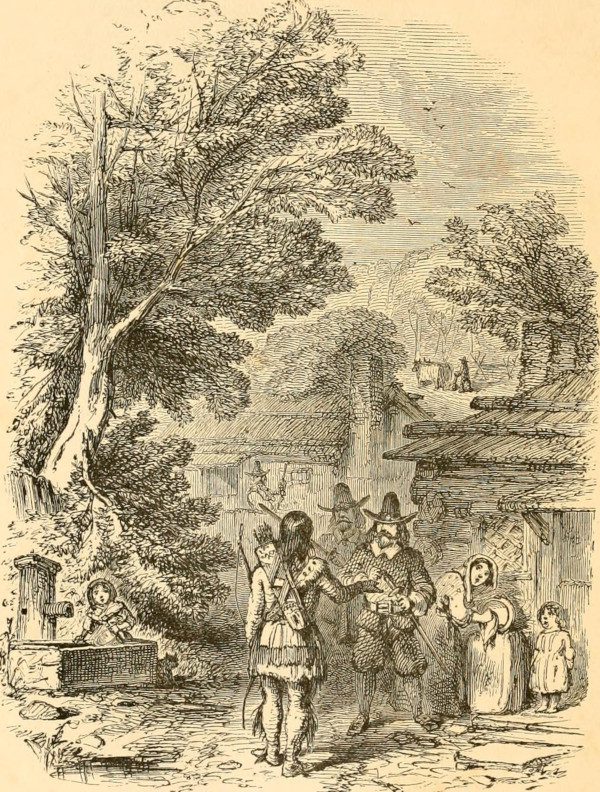
Moreover, when it comes to the Revolutionary “birth” of the United States as an independent nation (with those famous, complex founding ideals of liberty and freedom), Santorum is likewise wrong on a third level: about that origin coming “from nothing.” As I traced at length in this Considering History column, the colonists likely would never have won the American Revolution, nor created a successful new nation in its aftermath, without the vital support from allies around the world such as France and Morocco. But it’s just as true that the ideas and ideals on which the Revolution and founding were based had influences from numerous cultures and communities — European ones like the Magna Carta and the philosophies of John Locke and Jean-Jacques Rousseau; but also Native American ones, as illustrated by the profound influence of the Iroquois Confederacy and Constitution on the United States Constitution and American democracy. The United States was born from and developed through a number of global and cross-cultural influences.
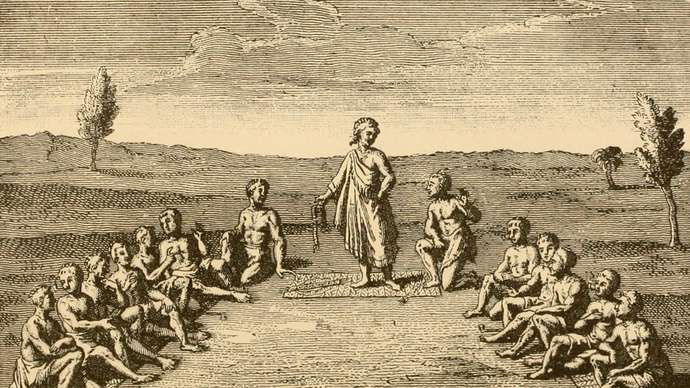
That last influence reveals how deeply wrong Santorum was in the final, “candid” part of his quote: the idea that “there isn’t much Native American culture in American culture.” The Iroquois Constitution is one of countless Native American political, social, and cultural elements that became and remain part of an evolving, overarching American identity. In his groundbreaking textbook Red, White, and Black: The Peoples of Early North America (now in its seventh edition), historian Gary B. Nash traces the cultural and cross-cultural influences of indigenous communities alongside others in the origins and growth of the United States, one of many convincing cases that without Native Americans there would be no America of any kind. And certainly the American communities that developed were influenced by indigenous cultures on countless levels, as illustrated for example by the ways in which the Hispanic American language, food, and culture of New Mexico differ dramatically from those of other neighboring regions due to the area’s native tribes and cross-cultural heritages. Santorum’s candid opinions would be much better informed with a reading of such sources.

All those specific wrongs are telling and in need of challenge to be sure. But ultimately, they’re all part and parcel of a more sweeping wrong, one present from the first word of Santorum’s quote: his definition of an American “we.” That definition is what I’ve called an exclusionary one, a vision of a founding American identity which explicitly leaves out Native American communities (among others, including enslaved African Americans of course) in favor of the “we” who “came here” from European nations. Such an exclusionary definition of the American “we” is likewise at the heart of the recent, renewed arguments in favor of “Anglo Saxon” national origins, and represents an overtly white supremacist vision of the nation’s foundational identity and community.
Santorum doesn’t just advance that definition of an American “we,” however — he also puts it to use as a founding history on which the United States and its ideals have been built. That narrative is what I call in my new book “mythic patriotism,” a celebration of a very specific, Euro-centric and frequently white supremacist version of the United States, one that leaves out many of the cultures and communities who have been present here — and also defines anyone who critiques that narrative as unpatriotic and even un-American.
In response to both this exclusionary definition and this mythic patriotism, we can amplify more inclusive, critical patriotic voices and perspectives from American history: like that of Native American minister and activist William Apess, who in his essays and speeches overtly made the case for Native Americans as central to America’s story. That’s the most significant way to challenge Rick Santorum’s profoundly inaccurate ideas.
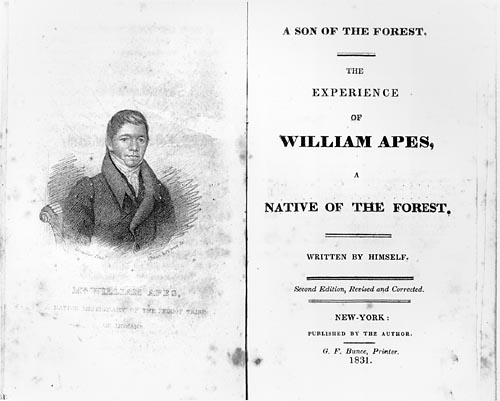
Featured image: Native American chiefs, 1865 (Wikimedia Commons)
Become a Saturday Evening Post member and enjoy unlimited access. Subscribe now
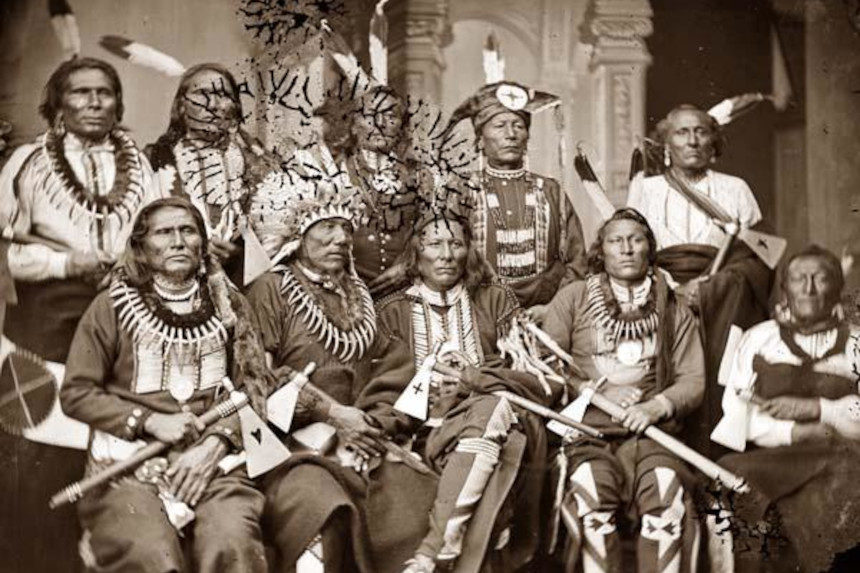

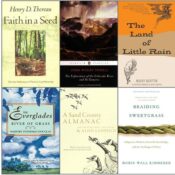

Comments
You’ve given mea new perspective, Ben. Thank you.
You’ve reminded me of an article on HuffPost — “ Founding Fathers: We Are Not a Christian Nation.”
https://www.huffpost.com/entry/founding-fathers-we-are-n_b_6761840
It’s too easy to insist that it’s best to hold fast to that old time religion, and that old time history we learned 40 years ago. No, just as our parents learned new things, we can, too – if we don’t let our prejudices blind us.
Many thanks to Ben Railton for educating us. The Native Americans deserve as much respect as we can offer them; and that can only happen when truths are shared and false beliefs are shattered. Shattered with the help of honest journalists like Mr. Railton.
Thanks for the comments, all. Mike Smith, I wanted to respond to yours, because I think it’s an important overall point for sure, and one I try very hard both to practice myself in my classes and to help students work on practicing themselves as well.
So I agree overall, but would say in this case that I believe I listened to and understood quite specifically what Santorum was saying. Even more than the Native American points, I believe he was making the points I come to at the end of my column, about how he’s defining an American “we.” I would argue that I heard and understood that point very clearly and fully, and that responding to it in our conversations is a key goal for all of us who would advance a very different “we.”
Thanks,
Ben
I am sure that Santorum is proof positive that the public schools are underperforming.
I wish Rick Santorum would read and understand American History, before he opens his mouth. I guess he never graduated high school.
Too often people consider others ‘wrong’ because they aren’t discussing the same things. Too many people aren’t developing skills that are important in society – listening and understanding. Instead, words are sometimes heard only in the context of the listener instead of the one speaking.
Added this as a comment on the FB post, so will do so here too:
“Just wanted to share this important Michael Leroy Oberg piece from today’s WaPo; the question of Iroquois influence on the US Constitution (that I mention in a paragraph in my column) is an uncertain one. However, I entirely stand by all my broader, & I would argue more crucial, points!
https://www.washingtonpost.com/outlook/2021/04/29/rick-santorum-his-critics-are-both-wrong-about-native-american-history/?fbclid=IwAR38YXoiu48pQltytL71dvtJ6Ngl9l2p_BhqLnCI3LRDaKwnbEpRBLlP6R0